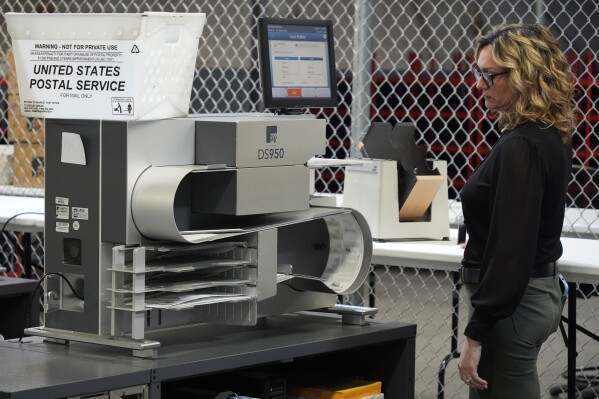Six out of 10 Britons back more NHS spending even if it means their personal taxes would increase, a poll has found.
Ipsos found 61% of people were willing to accept higher personal taxes if it meant more money being put into the health service.
Only 16% said they wanted tax cuts even if it meant less funding for the NHS.
Latest general election updates
The NHS was the only service where a majority said they would be willing to pay more tax if it provided more funding, but 40% or more said the same about defence, policing and education.
On public services more broadly, some 40% said they would accept higher taxes if it meant more funding, up slightly from 38% in February.
Some 27% of people said they wanted to see tax cuts even if it meant less spending on public services, down from 33% four months ago.
Some 46% of over-55s said they would pay more tax to fund higher spending, compared to 20% who preferred tax cuts.
But among those aged 18-34, only 34% wanted higher spending and 37% preferred tax cuts.
Keep up with all the latest news from the UK and around the world by following Sky News
Tap hereGideon Skinner, Ipsos senior UK director of politics, said the results reflected "high levels of public concern over the state of public services".
He added: "This is particularly high among Labour and Lib Dem voters, and among older people - although younger generations are less keen on increasing their personal tax bill."
Read more:
'NHS failed me time and time again'
Urgent blood donation appeal after IT cyber attack
👉 Click here to follow Electoral Dysfunction wherever you get your podcasts 👈
Tax has been a key issue this election, with the Tories pledging to cut taxes while claiming Labour would raise taxes to their highest level ever.
Meanwhile, Labour has promised not to raise income tax, national insurance or VAT and said it wants to see taxes on "working people" come down.
But the Ipsos survey suggests there is some appetite for raising taxes to fund public services.
The poll surveyed 1,131 British adults between 7 and 10 June.
Disclaimer: The copyright of this article belongs to the original author. Reposting this article is solely for the purpose of information dissemination and does not constitute any investment advice. If there is any infringement, please contact us immediately. We will make corrections or deletions as necessary. Thank you.



